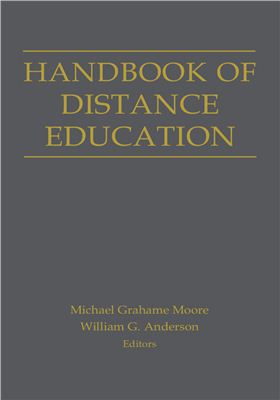Lawrence Erlbaum, 2003. - 896 Pages.
This handbook provides overviews and summaries of the research and practice of distance education in the United States. The last three to five years have seen an explosion of interest in and discussion about distance education, driven by the potential applications of interactive computer-based technology. Despite the impact of this new technology, this book is not about technology, but about the consequences of the separation of leaers and teachers, one of which is the need to use technology.
The volume provides a broad review of the research, complemented by commentaries based on practical experience. It addresses such questions as how distance education is best practiced at the level of the teacher, as well as the administrator, and it examines the public policy implications of shifting a greater proportion of educational resources to this method. Finally, it looks at how the expansion of distance education affects educational research and theory.
The Handbook has been recognized by the University Continuing Education Association's Distance Leaing Community of Practice as the "Outstanding Book of 2003. " Announcing the award, Elizabeth Houdek, Chair of the Awards committee wrote: "The Handbook has both breadth and depth and brings together the best thinking of the most noted practitioners in distance education and framed their contributions in an inspired format and structure. "
This handbook provides overviews and summaries of the research and practice of distance education in the United States. The last three to five years have seen an explosion of interest in and discussion about distance education, driven by the potential applications of interactive computer-based technology. Despite the impact of this new technology, this book is not about technology, but about the consequences of the separation of leaers and teachers, one of which is the need to use technology.
The volume provides a broad review of the research, complemented by commentaries based on practical experience. It addresses such questions as how distance education is best practiced at the level of the teacher, as well as the administrator, and it examines the public policy implications of shifting a greater proportion of educational resources to this method. Finally, it looks at how the expansion of distance education affects educational research and theory.
The Handbook has been recognized by the University Continuing Education Association's Distance Leaing Community of Practice as the "Outstanding Book of 2003. " Announcing the award, Elizabeth Houdek, Chair of the Awards committee wrote: "The Handbook has both breadth and depth and brings together the best thinking of the most noted practitioners in distance education and framed their contributions in an inspired format and structure. "

